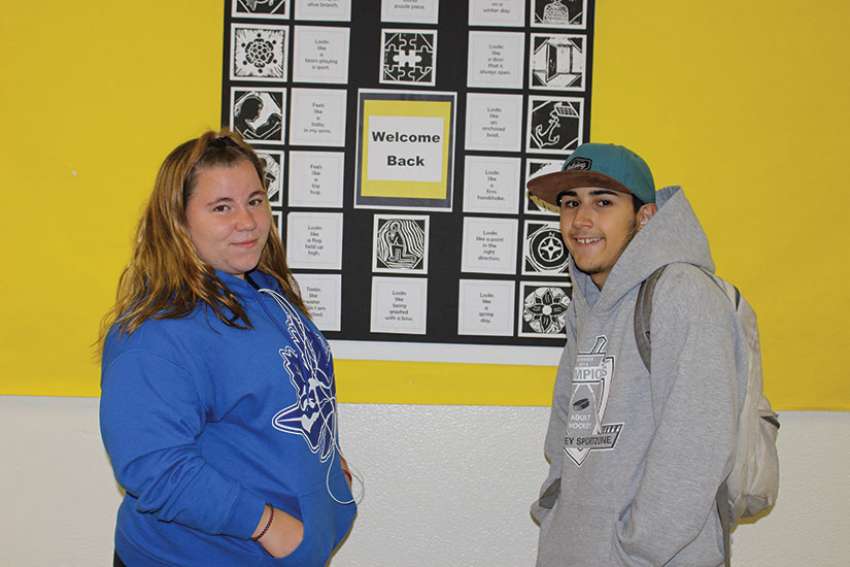“I hadn’t been in school for two years,” says Goffi, who started attending the Fraser Isabella campus last year. “I came back because I wanted to finish high school. When I got here I was like ‘Yes! I’m back! I’m going to do it this time.’ ”
For students who have fallen through the cracks of the education system, Msgr. Fraser is a haven. It is a place where academic success is made possible for students who may not have achieved it otherwise.
Part of the Toronto Catholic District School Board, Fraser has eight campuses across Toronto and accepts students from all backgrounds, including mature students and newcomers to Canada.
Leo Simoes, 18, says Fraser is the first school he has attended where it feels like the teachers care. Simoes says his attention deficit disorder made it difficult for him to learn at his previous school. He did not feel his teachers had the time to give him the extra support he needed.
“Ever since I came here, the teachers have been nothing but helpful,” says Simoes. “You can tell they’re not here because they have to be, they’re here because they want to see you succeed. I feel like I can talk to my teachers like they are my friends. You can tell they really care because they are always making sure you are okay.”
The school, named in honour of the founder of Scarboro Missions, Fr. John Fraser, opened in 1972 for adults looking to complete Grade 8. The focus evolved over the years and it now offers high-school credits to a wide range of students, from age 16 to over 21.
According to Flora Roche, a child and youth worker at Fraser, meeting the students’ individual needs is key to helping them succeed academically.
“We look at students as individuals, not numbers,” says Roche. “We don’t force them to complete the Grade 9 curriculum in Grade 9 and so on. We look at what they can handle.” Although having students at different levels of the curriculum in the same classroom can be a challenge, Roche says it is also an important life lesson.
“From the social and emotional perspective, a 20-year-old with two young children is going to have different wants, needs and goals from a 20-year-old who still lives with his or her parents. But it helps foster respect for individuals from all backgrounds.”
They have the numbers to prove an individualized curriculum works.
“This past year, we graduated 552 students,” said vice-principal Anna Patejczuk. “Which is a huge number considering many of them probably would not have graduated high school otherwise.”
The school also brings in agencies to speak to students about post-secondary options and available scholarships to fund them.
Despite the positive impact Fraser has on its students, the school, its faculty and its students find themselves fighting the stereotype of being an alternative high school.
“Fraser has a misplaced reputation,” said Christine Motran, the chaplaincy lead. “There was a time when it was seen as punitive to be sent to Fraser, but that’s no longer. Once the students are in, they’re fine, it’s just getting over that initial stigma.”
When Simoes was transferred to Fraser, the stereotypes he had heard about the school made him nervous.
“Some people told me it was good, but some people told me that it’s scary and they push you too hard. I didn’t know what to expect when I got here, but everyone was so nice and friendly,” says Simoes.
Both Simoes and Goffi have post-secondary aspirations: Simoes loves cars and hopes to become a mechanic while Goffi hopes to attend George Brown College and become an event planner.

